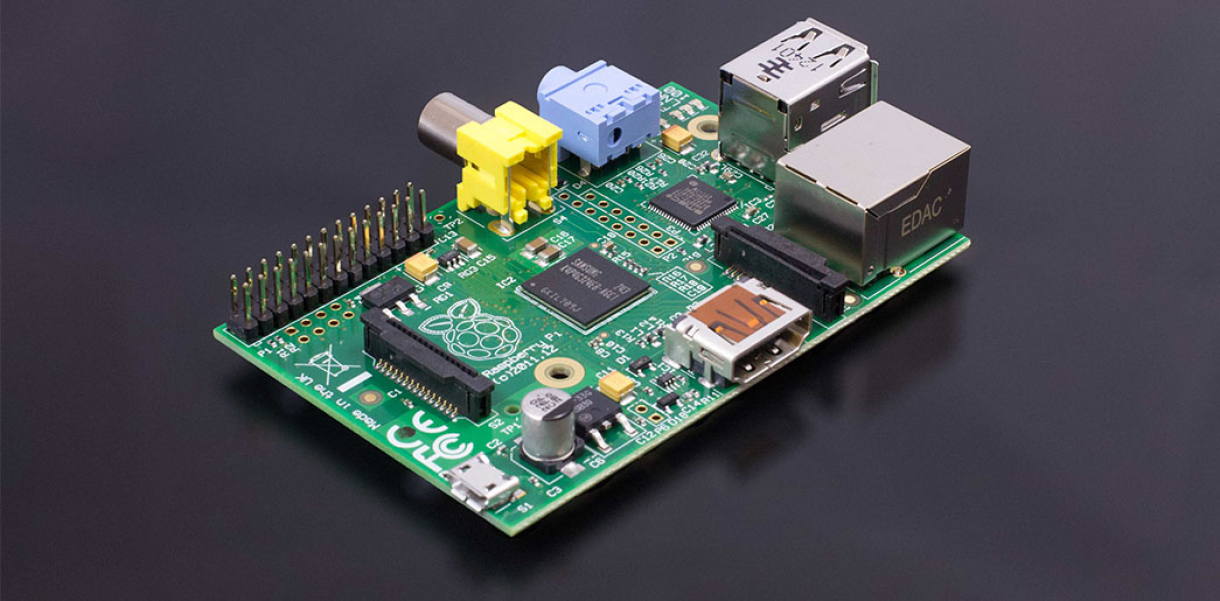The dramatic digitalization of our world requires future generations to be equipped with special skills, enabling them to steer the helm of the computer age. To address this, computer scientists from University of Cambridge developed the Raspberry Pi , a tiny and highly affordable computer that can be used by people all over the world.
Eben Upton and his colleagues at the University of Cambridge’s Computer Laboratory sparked the idea for a highly affordable and customizable mini-computer in 2006 due to the year-on-year decline of both the numbers and skill levels of students applying to study Computer Science. Upton explains: "In contrast to the 90′s when those applying already had experience within programming gained through their hobbies, a typical applicant in present day would have fewer skills on day one".
"In contrast to the 90′s when those applying had experience within programming gained through their hobbies, a typical applicant in present day might only have minor skills within web design."
And due to the lack of experienced applicants - which is backed by research carried out by the Royal Society that shows there has been a 60% decline in the number of British students achieving an A-level in computing since 2003 - they became concerned that they might soon be unable to fill classes and realized something needed to be done in order to solve this increasing problem.
The decline is of huge concern, since we currently – now more than ever – are living in a digital era, and “if you cannot control technology, you are controlled by those who can”, says INDEX: Award jury member Ravi Naidoo.
"If you cannot control technology, you are controlled by those who can."
Designed in Cambridge and manufactured in Wales, the INDEX: Award 2013 Winner in the PLAY&LEARNING Category, Raspberry Pi, is looking to be a catalyst towards solving the world’s computing issues by educating and empowering today’s youth about programming.
The organization behind this pocket-sized revolution, the Raspberry Pi Foundation, is a non-profit who spent 6 years developing the first prototype, and the end product, Raspberry Pi, is a computer the size of a credit card, costing a mere $35, designed to activate kids and curious adults into coding computers.
The Raspberry Pi's software is open-source, chip manufacturers are keeping their prices low, and the majority of the profits are funneled towards improving the devices and creating incentives to get children programming. So there is an aura of goodwill around the project, and Ravi Naidoo from the INDEX: Award Jury builds on that: "We must use this window of opportunity to prepare our kids better for an even more digitalized world, and not just envelope them in ready-made tech as we have been doing so far. Let's take it to the next level and live creative lives instead of leading edited lives."
The success since the launch of Raspberry Pi has been immense due to their careful and perfectionist approach. When they launched on February 29, 2012, the 10 thousand units they put on sale were thus sold out in a matter of hours. And during a TEDX talk, co-founder Jack Lang explained that Raspberry Pi had become the fastest growing computer company in the world - 1 million Raspberry Pi’s were sold globally in the first twelve months.
What’s more amazing is that the Raspberry Pi Foundation actively encourages other companies to compete with it, with the goal that owning a truly personal computer will be normal for children and that the next generation thinks about coding and building in the computer universe. But if we really want the next generations to design their own digital future, we need to make them computer-literate. Nille Juul-Sørensen of the INDEX: Award jury says: "Raspberry Pi is the possibility for people and especially kids to inform and get informed about the knowledge flow in society and thus become active players in the evolution and articulation of how democracy will be able to function in the future."
Raspberry Pi is democratizing coding and giving back to people the possibility of exploring Data Mining and Data Processing so each individual has the possibility to construct arguments, insights, and specific design proposals for new services, businesses and applications. "Raspberry Pi democratizes computer literacy by enabling its users to understand what's actually going on", says INDEX: Award jury chairman Mikael Hallstrup.
"Raspberry Pi democratizes computer literacy by enabling its users to understand what's actually going on."
Raspberry Pi wins INDEX: Award and €100,000 for two main reasons:
The ability to provide kids with a tool that can help them understand computer coding and the ability to distribute computer power widely for very little money: In our globalized world, many of us are illiterates to a language, which increasingly characterizes our world and our choices. That language is computer encoding and this illiteracy means that few of us are actually able to understand, let alone write the programs that - everyday - decide what we buy online, who we are friends with on Facebook, and what answers we are offered when we are Googling. Raspberry Pi is a part of the solution of this serious illiteracy.
The low price of Raspberry Pi ensures that creativity and play can be added to children and young people's use of computers and programming. Raspberry Pi is awarded as a market leader with a very open approach to sharing, which actively encourages other companies to clone what they’re doing.
Use of award money
Raspberry Pi Foundation will use the €100,000 from winning INDEX: Award 2013 to pay one year's salary and expenses for one new full-time and one new part-time employee for the Raspberry Pi Foundation. Both employees will work on producing original educational support material for the Raspberry Pi, and on repackaging permissively licensed third-party material into a standardized format.
The provision of high-quality teaching resources is the key to making an impact outside the core users which are independent schools, high-achieving state schools, children of technically literate adults, and is an area where the Raspberry Pi Foundation is only just starting to make an investment. A particular opportunity is rising in the UK in the coming year since a new computing curriculum is being introduced in 2014 and many UK non-specialist teachers will require careful support to deliver a high-quality experience to their students.
The Raspberry Pi Foundation have recently sponsored the creation of a first-level "map" of the curriculum, and by the start of the 2014-2015 academic year, the two employees funded by INDEX: Award will have produced detailed support material covering the majority of this map.




